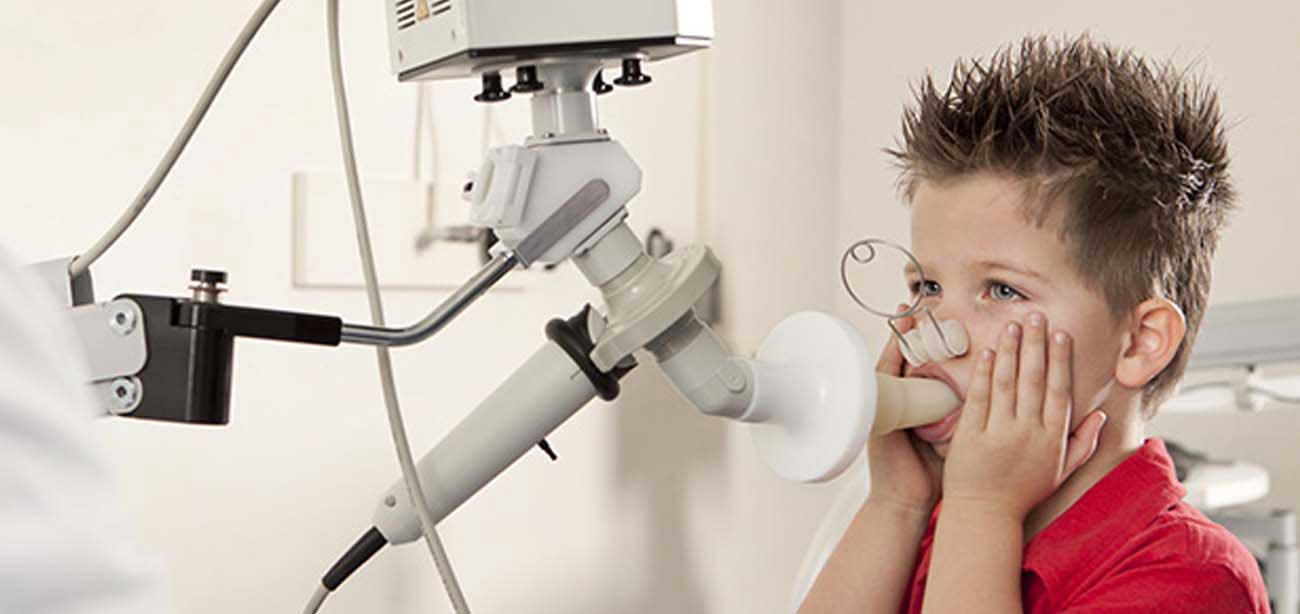Pulmonary Function Test (PFT)

What are pulmonary function tests?
Pulmonary function tests (PFTs) are noninvasive tests that show how well the lungs are working. The tests measure lung volume, capacity, rates of flow, and gas exchange. This information can help your healthcare provider diagnose and decide the treatment of certain lung disorders.
PFT can be done with 2 methods. These 2 methods may be used together and perform different tests, depending on the information that your healthcare provider is looking for:
- Spirometry
A spirometer is a device with a mouthpiece hooked up to a small electronic machine.
- Plethysmography
You sit or stand inside an air-tight box that looks like a short, square telephone booth to do the tests.
Why might I need pulmonary function tests?
There are many different reasons why pulmonary function tests (PFTs) may be done. They are sometimes done in healthy people as part of a routine physical. They are also routinely done in certain types of work environments to ensure employee health (such as graphite factories and coal mines). Or you may have PFTs if your healthcare provider needs help to diagnose you with a health problem such as:
- Allergies
- Respiratory infections
- Trouble breathing from injury to the chest or a recent surgery
- Chronic lung conditions, such as asthma, bronchiectasis, emphysema, or chronic bronchitis
- Asbestosis, a lung disease caused by inhaling asbestos fibers
- Restrictive airway problems from scoliosis, tumors, or inflammation or scarring of the lungs
- Sarcoidosis, a disease that causes lumps of inflammatory cells around organs, such as the liver, lungs, and spleen
- Scleroderma, a disease that causes thickening and hardening of connective tissue
PFTs may be used to check lung function before surgery or other procedures in patients who have lung or heart problems, who are smokers, or who have other health conditions. Another use of PFTs is to assess treatment for asthma, emphysema, and other chronic lung problems. Your healthcare provider may also have other reasons to advise PFTs.
What happens during pulmonary function tests?
You may have your procedure as an outpatient. This means you go home the same day. Or it may be done as part of a longer stay in the hospital. The way the procedure is done may vary. It depends on your condition and your healthcare provider's methods. In most cases, the procedure will follow this process:
- You’ll be asked to loosen tight clothing, jewelry, or other things that may cause a problem with the procedure.
- If you wear dentures, you will need to wear them during the procedure.
- You’ll need to empty your bladder before the procedure.
- You’ll sit in a chair. A soft clip will be put on your nose. This is so all of your breathing is done through your mouth, not your nose.
- You’ll be given a sterile mouthpiece that is attached to a spirometer.
- You’ll form a tight seal over the mouthpiece with your mouth. You’ll be instructed to inhale and exhale in different ways.
- You will be watched carefully during the procedure for dizziness, trouble breathing, or other problems.
- You may be given a bronchodilator after certain tests. The tests will then be repeated several minutes later, after the bronchodilator has taken effect.
 Call For Appointment
Call For Appointment